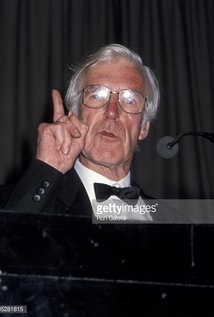
Charles Crichton
Birthday:
6 August 1910, Wallasey, Cheshire, England, UK
Birth Name:
Charles Ainslie Crichton
Director Charles Crichton's film career began as an editor in 1935 with Alexander Korda's London Films, and in that capacity he worked on such productions as Sanders of the River (1935), Things to Come (1936) and Elephant Boy (1937) (which introduced Sabu to movie audiences). He soon left London Films for Ealing Studios, and rose quickly ...
Show more »
Director Charles Crichton's film career began as an editor in 1935 with Alexander Korda's London Films, and in that capacity he worked on such productions as Sanders of the River (1935), Things to Come (1936) and Elephant Boy (1937) (which introduced Sabu to movie audiences). He soon left London Films for Ealing Studios, and rose quickly through the ranks, making his directorial debut with For Those in Peril (1944). Meticulous to the point of being referred to as a "perfectionist", Crichton came into his own at Ealing, a studio noted for its comedies, and among his best known are the quirky but charming The Titfield Thunderbolt (1953) and the wildly popular The Lavender Hill Mob (1951). He tried his hand at drama--outside of Ealing--with Hunted (1952), starring Dirk Bogarde. When Ealing closed its doors in 1959, Crichton's film work petered off, and he turned more and more to television, becoming a prolific director of crime and adventure series. His occasional forays back into feature films were not particularly productive, and for the most part he remained in television, directing episodes of such popular shows as Danger Man (1964), The Avengers (1961) and Space: 1999 (1975).At the request of star John Cleese, Crichton agreed to direct Cleese, Jamie Lee Curtis and Kevin Kline in the offbeat comedy A Fish Called Wanda (1988), which turned out to be a huge international hit. It was his biggest success, and also his last film. He died in London at 1999, at age 89. Show less «
People think that if you're directing comedy, you've got to be funny. On the contrary, you've got to be serious.
People think that if you're directing comedy, you've got to be funny. On the contrary, you've got to be serious.



